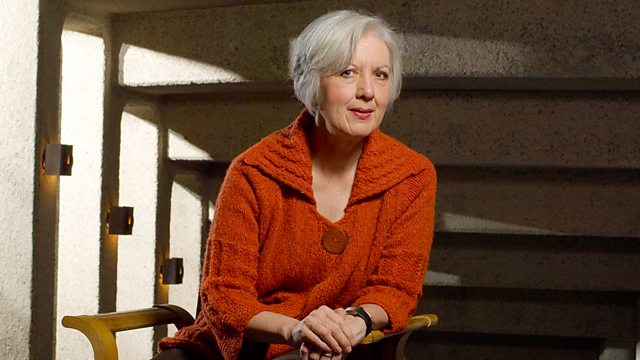
Perspectives
Judith Weir explains to Donald Macleod how the elements around her, from outer space to the roof of the Royal Albert Hall, are distilled in the form and language of her music.
Judith Weir describes how the elements around her, from outer space to the roof of the Royal Albert Hall become are distilled in the form and language of her music.
One of our most distinguished composers, in July 2014 Judith Weir succeeded Sir Peter Maxwell Davies as Master of the Queen's Music. It's an honour that joins an already impressive collection of awards, which include a CBE and the Queen's Medal for Music. Born in 1954 into a musical Scottish family, Weir grew up near London. A member of the National Youth Orchestra of Great Britain, Weir studied composition with John Tavener during her school holidays. More formal studies followed at Cambridge University, including composition with Robin Holloway, and at Tanglewood summer school, where she worked with Gunther Schuller. The possessor of a rich, fertile imagination, Weir draws on a wide variety of sources, notably dark fairytales, folk stories, Chinese philosophy, Indian music and culture, distilling their essence in music of luminous clarity. Her fundamental concern is to tell stories. An articulate communicator, Weir's writing about her music encapsulates the process brilliantly. In this series, Weir offers a personal insight into some of the musical projects which have occupied her since the beginning of the noughties.
From the vernacular to the literary, Judith Weir takes inspiration from the world around her. Ancient forms, folk tales, the universe and Chinese philosophical literature are recurring sources of inspiration. Today, in conversation with Donald Macleod, Judith Weir traces the roots of their appeal and illustrates the variety in her treatment of these persistent themes.
Last on
Music Played
-
![]()
Judith Weir
Airs From Another Planet For Wind Quintet And Piano
Conductor: Odaline de la Martinez. Ensemble: Lontano.- LORELT : lnt-103.
- LORELT.
- 5.
-
![]()
Judith Weir
Magnificat And Nunc Dimittis For Chorus
Choir: ���˿��� Singers. Conductor: David Hill. -
![]()
Judith Weir
Moon And Star For Chorus And Orchestra
Orchestra: ���˿��� Symphony Orchestra. Choir: ���˿��� Singers. Conductor: Martyn Brabbins.- NMC : 13-7.
- NMC.
- 6.
-
![]()
Judith Weir
Psalm 148 For Chorus And Trombone
Performer: Matthew Knight. Choir: Gonville and Caius Coll. Cambridge Choir. Conductor: Geoffrey Webber.- DELPHIAN : DCD34095.
- DELPHIAN.
- 1.
-
![]()
Judith Weir
Natural History For Soprano And Orchestra
Singer: Ailish Tynan. Orchestra: ���˿��� Symphony Orchestra. Conductor: Martyn Brabbins.- NMC : NMC-D137.
- NMC.
- 2.
Broadcasts
- Wed 1 Apr 2015 12:00���˿��� Radio 3
- Wed 1 Apr 2015 18:30���˿��� Radio 3
Beethoven Unleashed – the box set
What was really wrong with Beethoven?
Composers A to Z
Who knew? Five eye-opening stories from Composer of the Week
Five reasons why we love Parry's Jerusalem
What is the strange power of Jerusalem which makes strong men weep?
A man out of time – why Parry's music and ideas were at odds with his image...
The composer of Jerusalem was very far from the conservative figure his image suggests.
Composer Help Page
Find resources and contacts for composers from within the classical music industry.





